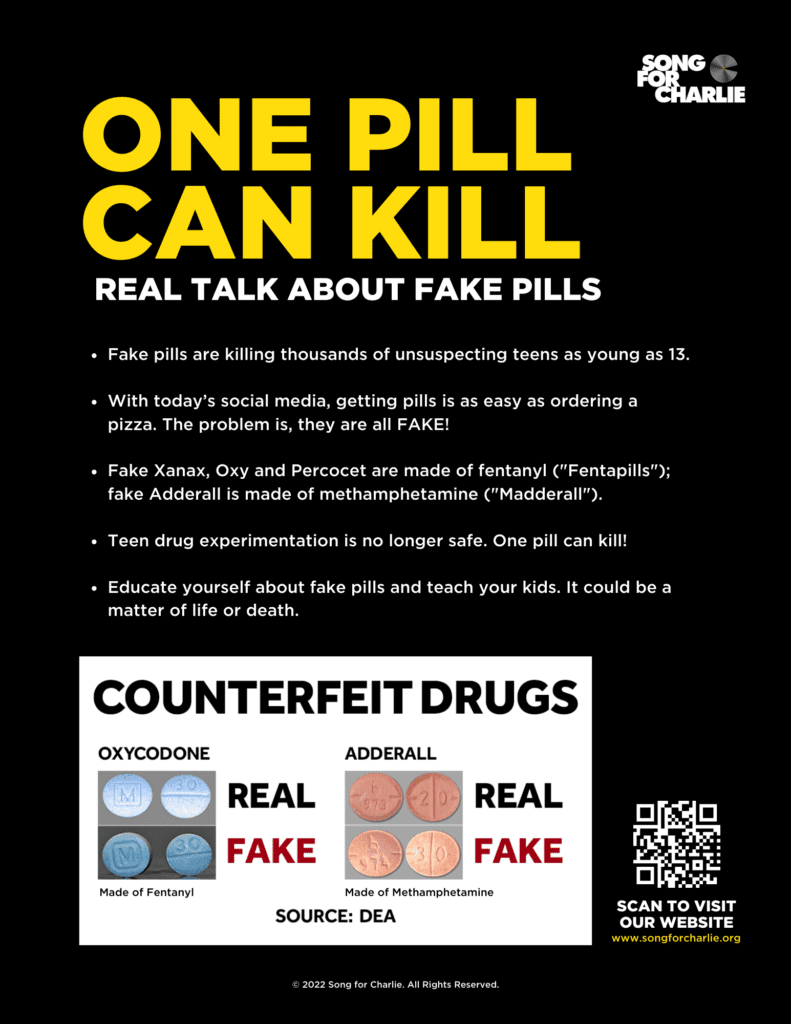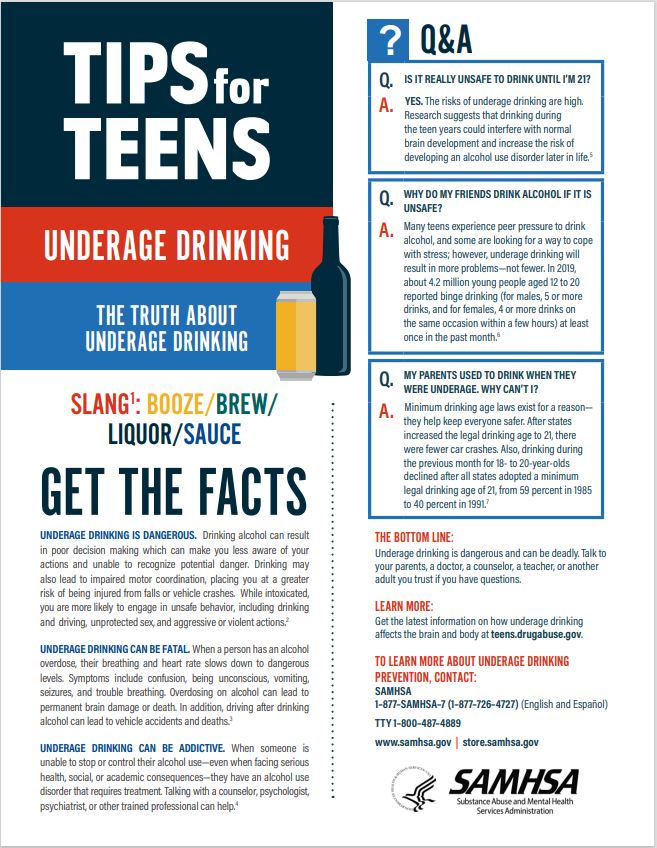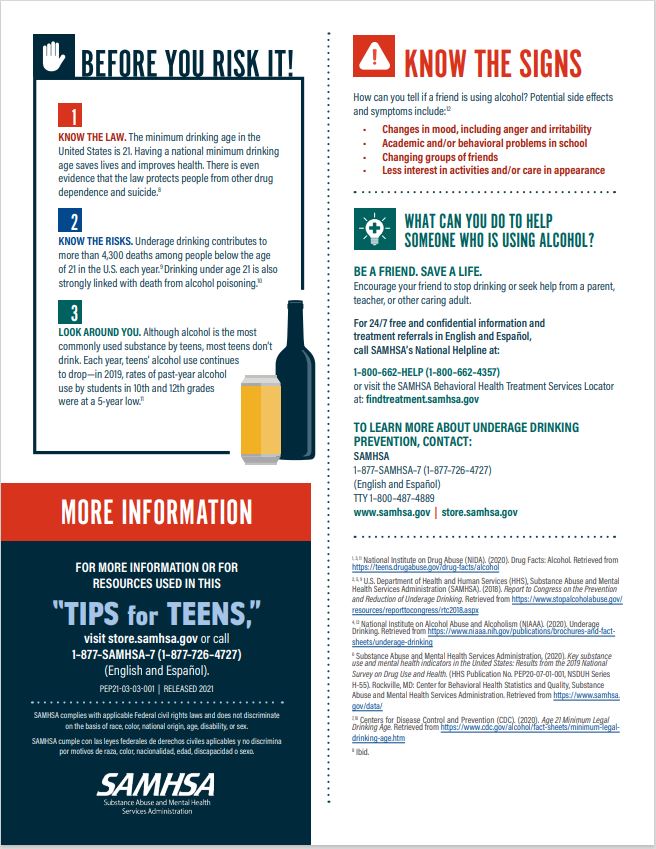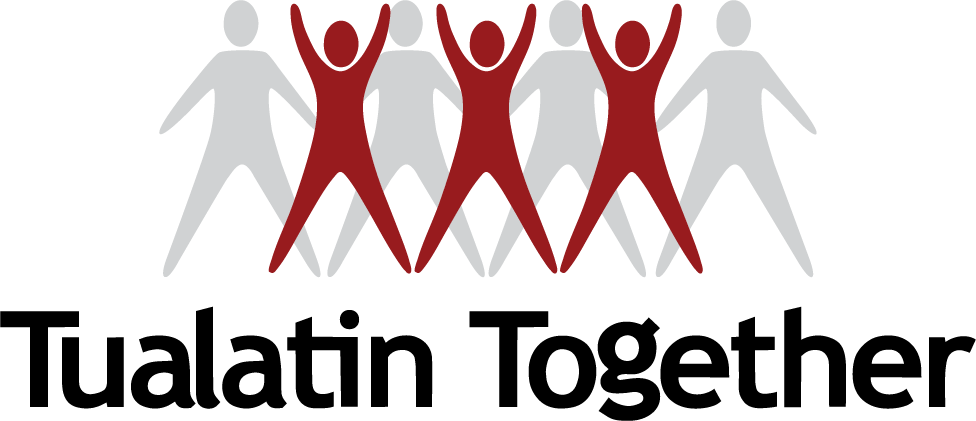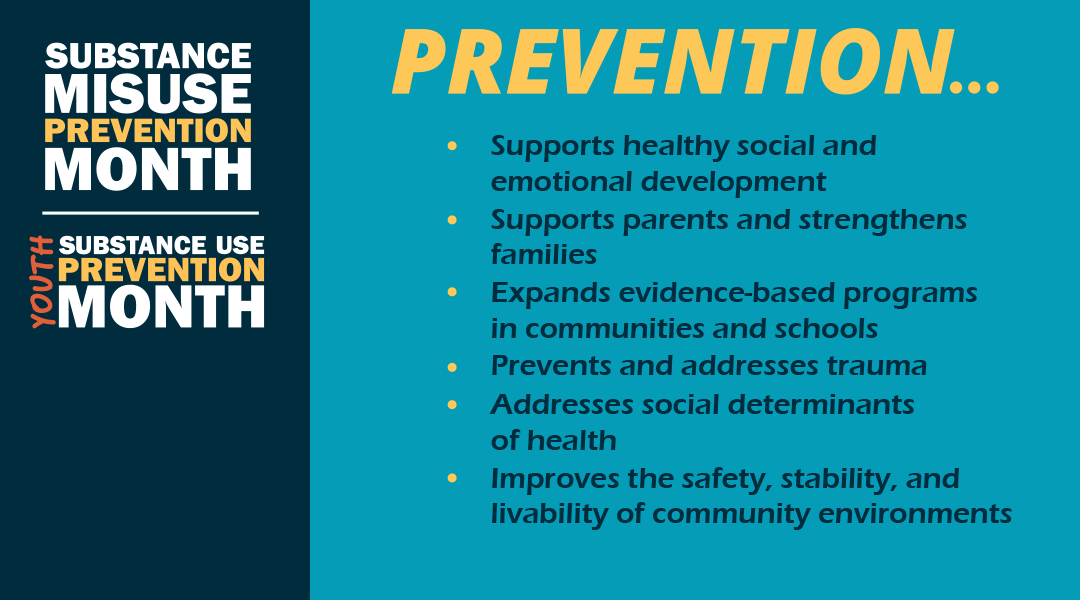
October is Youth Substance Use Prevention Month and Substance Misuse Prevention Month.
- Prevention strengthens protective factors and reduces risk factors ― in individuals, families, schools, communities, and across society.
- Prevention science, and decades of community-based experience and scientific research, shows that prevention works.
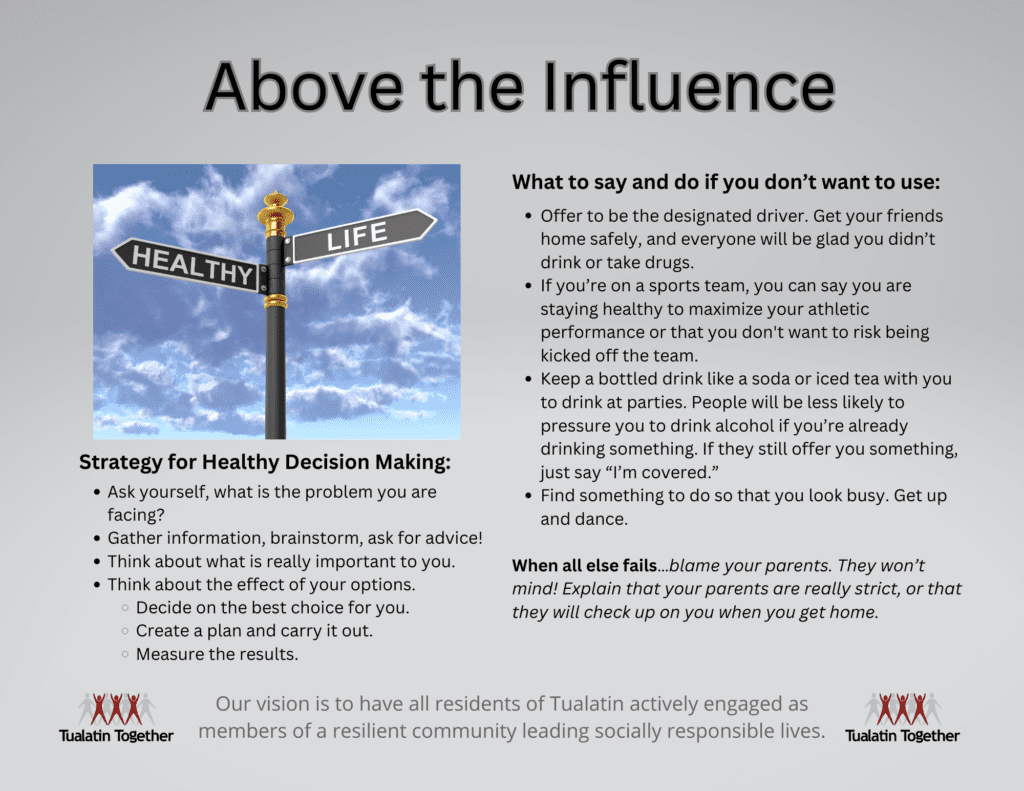
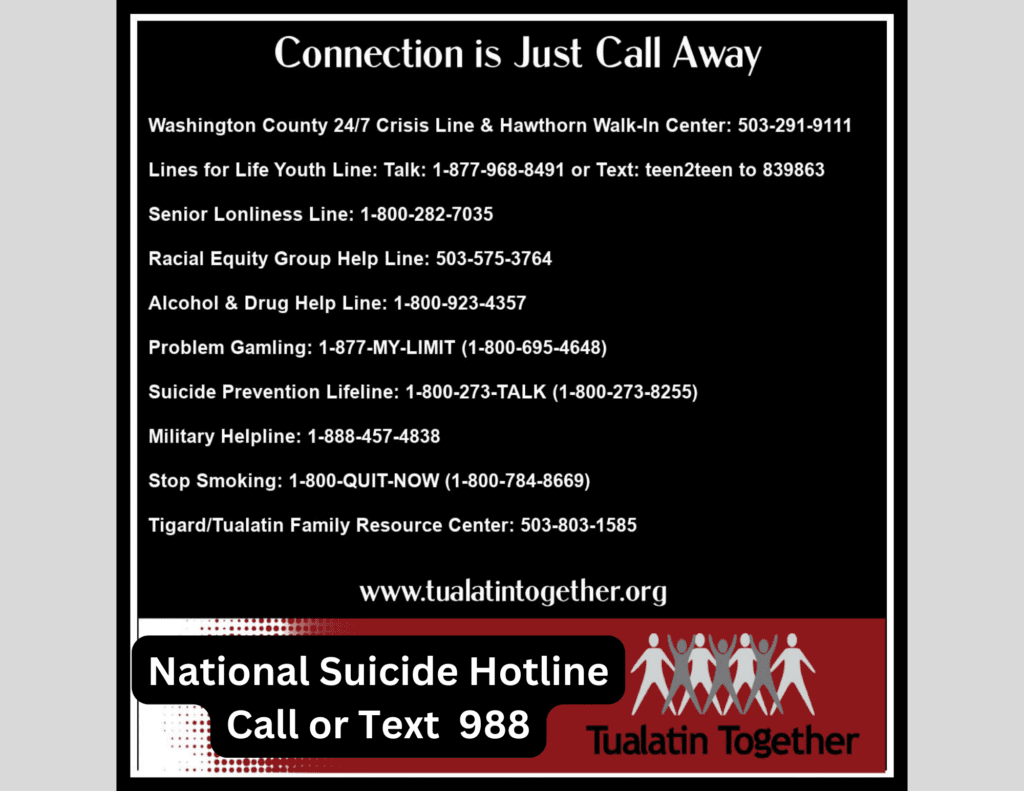
Know the Risks of Marijuana
Marijuana Risks
Marijuana use can have negative and long-term effects:
![]() Brain health: Marijuana can cause permanent IQ loss of as much as 8 points when people start using it at a young age. These IQ points do not come back, even after quitting marijuana.
Brain health: Marijuana can cause permanent IQ loss of as much as 8 points when people start using it at a young age. These IQ points do not come back, even after quitting marijuana.
![]() Mental health: Studies link marijuana use to depression, anxiety, suicide planning, and psychotic episodes. It is not known, however, if marijuana use is the cause of these conditions.
Mental health: Studies link marijuana use to depression, anxiety, suicide planning, and psychotic episodes. It is not known, however, if marijuana use is the cause of these conditions.
![]() Athletic Performance: Research shows that marijuana affects timing, movement, and coordination, which can harm athletic performance.
Athletic Performance: Research shows that marijuana affects timing, movement, and coordination, which can harm athletic performance.
![]() Driving: People who drive under the influence of marijuana can experience dangerous effects: slower reactions, lane weaving, decreased coordination, and difficulty reacting to signals and sounds on the road.
Driving: People who drive under the influence of marijuana can experience dangerous effects: slower reactions, lane weaving, decreased coordination, and difficulty reacting to signals and sounds on the road.
![]() Baby’s health and development: Marijuana use during pregnancy may cause fetal growth restriction, premature birth, stillbirth, and problems with brain development, resulting in hyperactivity and poor cognitive function. Tetrahydrocannabinol (THC) and other chemicals from marijuana can also be passed from a mother to her baby through breast milk, further impacting a child’s healthy development.
Baby’s health and development: Marijuana use during pregnancy may cause fetal growth restriction, premature birth, stillbirth, and problems with brain development, resulting in hyperactivity and poor cognitive function. Tetrahydrocannabinol (THC) and other chemicals from marijuana can also be passed from a mother to her baby through breast milk, further impacting a child’s healthy development.
![]() Daily life: Using marijuana can affect performance and how well people do in life. Research shows that people who use marijuana are more likely to have relationship problems, worse educational outcomes, lower career achievement, and reduced life satisfaction.
Daily life: Using marijuana can affect performance and how well people do in life. Research shows that people who use marijuana are more likely to have relationship problems, worse educational outcomes, lower career achievement, and reduced life satisfaction.
Information Source www.samhsa.gov/marijuana
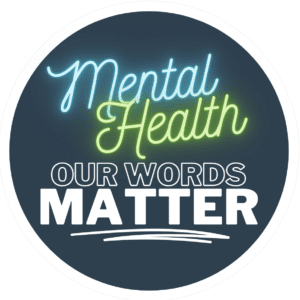
What is Mental Health?
Mental health includes our emotional, psychological, and social well-being. It affects how we think, feel, and act, and helps determine how we handle stress, relate to others, and make choices.
Mental health is important at every stage of life, from childhood and adolescence through adulthood. Over the course of your life, if you experience mental health problems, your thinking, mood, and behavior could be affected.
Access this link for more information SAMHSA Mental Health Awareness
